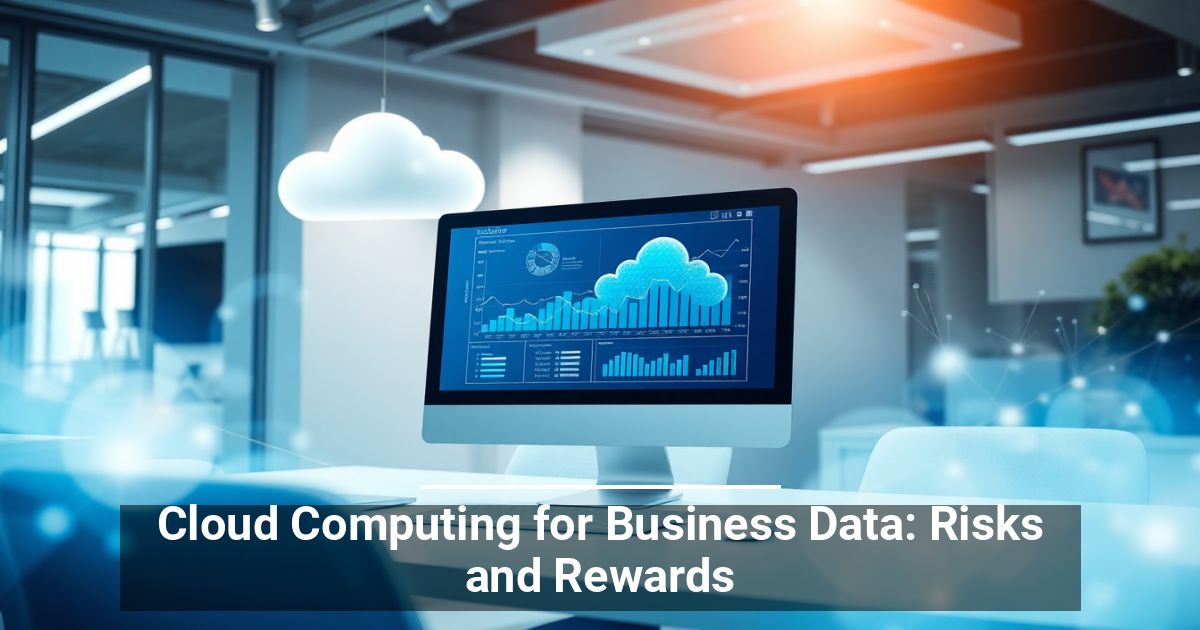 Is the cloud compatible with your business? Cloud computing's convenience has become a game-changer for many companies, but it’s not without challenges.
Is the cloud compatible with your business? Cloud computing's convenience has become a game-changer for many companies, but it’s not without challenges.
Read on and weigh the opportunities and threats before you make big changes to your operations.
What Is Cloud Computing?
Gone are the days when you have to spend thousands on physical computers and data centers. Cloud computing involves storing and accessing data online instead of on physical devices. It’s like having an office you can access almost anywhere and anytime.
Businesses use it for virtualization services like data storage, teamwork tools, and file backup. For example, Google Drive and Dropbox make sharing and saving easy.
The Value of the Cloud for Modern Enterprises
Why should you make the switch? Adopting cloud computing brings many potential advantages:
Cut Down on Operational Costs
Cloud computing lets businesses skip on-site infrastructure. Say goodbye to constant maintenance and expensive hardware upgrades. You can choose a pay-as-you-go software-as-a-service (SaaS) model and only invest in what you need.
Effortless Scalability
Cloud computing is incredibly flexible. Do you need to grow fast? Expand your capacity with just a few clicks. If you have to scale down, simply reduce usage anytime. It’s a simple, reliable way to stay agile in a fast-paced world.
Strengthen Connections and Collaborations in the Workplace
This technology makes teamwork easier than ever. Employees and business partners can access the same files and tools no matter where they are, and real-time updates mean everyone stays on the same page.
Distance will no longer be a barrier to productivity.
Fortify Your Data
Top cloud providers prioritize security. They use encryption, firewalls, and regular audits to safeguard your data so your business stays better protected from threats like cyberattacks and accidental loss. Automated backups keep your files safe, even during disasters.
Challenges To Consider Before Cloud Integration
Every big shift comes with hurdles. It never hurts to prepare for the following:
Privacy and Security Challenges
Even diligent infrastructure-as-a-service (IaaS) providers can face breaches. The rising number of cyber threats means no system is flawless.
Reliability Hinges on Connectivity
You need the Internet to access the cloud. Slow or unstable connections could halt your daily operations. Contingency plans like backup networks can help.
Dependence on Vendors
Check service agreements closely. Look for uptime guarantees and clear responsibilities. Some platform-as-a-service (PaaS) vendors have compensation for outages — don’t overlook this.
Compliance Requirements
Adopting the cloud means staying compliant with data protection laws like GDPR or CCPA, and providers often have tools to help with this. The specific regulatory frameworks depend on the nature of the data stored and the cloud server’s geographical location.
Taking the Leap Toward Smarter Business Operations
Edge computing brings processing closer to users, but cloud computing shines bright with its scalability and cost-efficiency. Start small, choose the right partner, and watch your business adapt and thrive in a constantly changing world.


